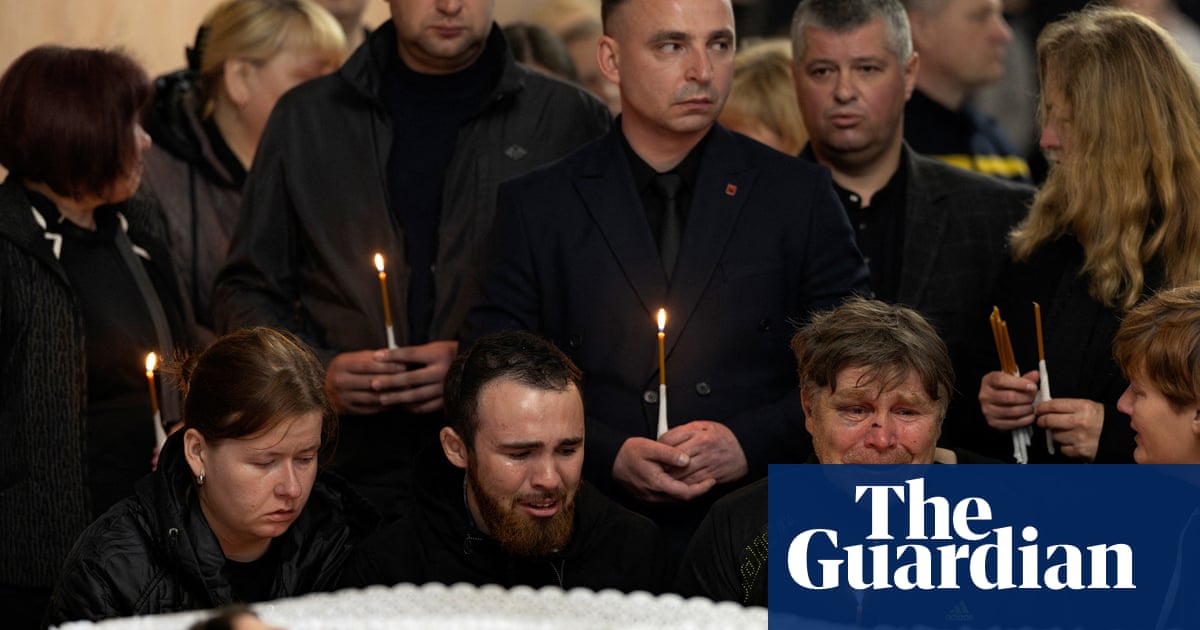Ukraine has submitted its peace terms and insisted Russia do the same before further talks, which the Kremlin has demanded take place next Monday in Turkey.“We are not opposed to further meetings with the Russians and are awaiting their memorandum,” said the Ukrainian defence minister, Rustem Umerov. “The Russian side has at least four more days before their departure to provide us with their document for review. Diplomacy must be substantive, and the next meeting must yield results.”
Russia’s foreign minister, Sergei Lavrov,said instead that a Russian team “is ready to present a memorandum to the Ukrainian delegation and provide the necessary explanations during a second round of direct talks in Istanbul on Monday, 2 June”.The US secretary of state, Marco Rubio,on Wednesday called for Moscow to engage in “good-faith” talks with Ukraine in a call with Lavrov.
Ukraine’s president, Volodymyr Zelenskyy, on Wednesday accused Russia of dragging out the peace processand of not wanting to halt its offensive. “They will constantly look for reasons not to end the war,” he said at a press conference in Berlin alongside the German chancellor, Friedrich Merz.
Vladimir Putin promised Donald Trump that Russia would produce the “memorandum” in conjunction with Ukrainewhen theirmuch-vaunted phone calltook place on 19 May. Donald Trump posted on Tuesday that Putin was “playing with fire” by continuing to attack Ukraine, but on Wednesday the US president’s words sounded more tepid. Trump said he would determine within “about two weeks” whether Putin was serious about ending the fighting. He was “very disappointed” butrebuffed calls to impose more sanctions on Moscow: “If I think I’m close to getting a deal, I don’t want to screw it up by doing that.”As Peter Beaumont writes, there has beenlittle or no sign of a deal.
Three Ukrainian children, aged 8, 12 and 17 – siblings killed in their beds by a Russian cruise missile – lay side by side in their coffinson Wednesday as a church choir sang in Korostyshiv, about 100km (60 miles) west of Kyiv. They were surrounded by dozens of bouquets. Moscow denies targeting civilians, but abundant evidence shows otherwise. The children’s father, still bearing fresh injuries, was released from the hospital to attend the funeral. He and his two surviving children sat beside the coffins.
As Zelenskyy visited Germany, the two countries announced thatBerlin will help finance long-range weapons production on Ukrainian soil,Kate Connolly writes. The deal appears at least in part to be a workaround to German concerns about being labelled a “warmonger” if it provides its far-reaching Taurus cruise missiles to Ukraine. The expectation is that Berlin will supply Ukraine with the technical components to build and maintain its own long-range weaponry, including rockets and cruise missiles, with a range of up to 2,500km.
Neither leader would detail the specific weaponsthat would be manufactured in Ukraine, saying it was prudent to keep the information as secretive as possible. Zelenskyy said he expected the first weapons to be ready by June 2026. Contrary to some perceptions, Germany has long supported Kyiv and is the second-biggest deliverer of weapons after the US.
On the battlefield,Zelenskyy said Russia was amassing more than 50,000 troops on the frontline around the north-east Sumy border region, where Moscow’s army claims to have captured a number of settlements as it seeks to establish what Putin has called a “buffer zone” inside Ukrainian territory.
Ukrainesaid a heavy wave of drone attacks into Russia on Wednesdaystruck several of the Kremlin’s weapon production sites.
